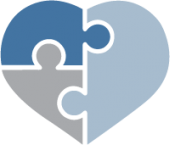I, Relate
I, Relate
The Unlikely Union: How the Relationship Counselling Ethos Boosts Software Development Productivity
Why Should Techies Care About Relationship Counselling?
At first glance, you might think that relationship counselling and software development occupy opposite ends of the spectrum. Yet, delve a little deeper and you’ll see that both fields share a core essence: human interaction. In a nutshell, successful software development relies on effective communication, collaboration, and conflict resolution, elements that relationship counselling has mastered. Let’s explore how relationship counselling ethos and techniques can turbocharge software development productivity.
The Fabric of Teamwork: Trust and Open Communication
Software development isn’t a one-man show. It involves designers, developers, testers, customers, and often, cross-functional teams from other departments. This melting pot can either cook up an extraordinary result or turn into a recipe for disaster. That’s where relationship counselling principles come into play. Trust-building exercises and open communication channels, often advocated by relationship counselling, can help team members understand and respect each other’s roles, fostering a more cohesive working environment.
Conflict Resolution: The Relationship Counselling Way
Conflicts are part and parcel of any collaboration, let alone software development with its tight deadlines and constant need for problem-solving. Relationship counselling is adept at resolving disputes and finding middle ground, skills that are just as useful in the tech world. Techniques such as active listening and ‘I’ statements can pave the way for constructive discussions, rather than finger-pointing or blame games. This encourages quicker resolution of issues, saving both time and sanity.
Emotional Intelligence: Not Just for Lovers
While emotional intelligence (EQ) might sound like the antithesis of the logic-driven tech sphere, it’s surprisingly crucial. High EQ can enhance problem-solving abilities and contribute to better collaboration. Relationship counselling’s focus on developing emotional intelligence can help team members become more aware of their own reactions and the feelings of others, thereby enhancing overall productivity.
Iterative Improvement: Learning from Relationships
Just like any relationship, software development benefits from periodic check-ins and adjustments. Relationship counselling’s method of iterative feedback and adjustment mirrors prevailing methods in software development. Regular retrospective meetings, a technique in line with relationship counselling’s ethos, allow for continual improvement and adjustment throughout the development life cycle.
The Ripple Effect
Adopting the relationship counselling ethos can have longer-term benefits. Enhanced communication skills, improved conflict resolution abilities, and a heightened emotional intelligence level are not development-specific. They’ll enrich the work environment, thereby leading to better collaborations in the future and stronger, more resilient, more joyful teams.
In Summary
Though it might seem unusual, the relationship counselling ethos offers tangible benefits for software development teams. From trust-building and conflict resolution to fostering emotional intelligence, these techniques can significantly impact productivity. So, the next time you’re stuck in a dev team stand-off or facing a seemingly insurmountable challenge, you might just find the solution in relationship counselling techniques.

